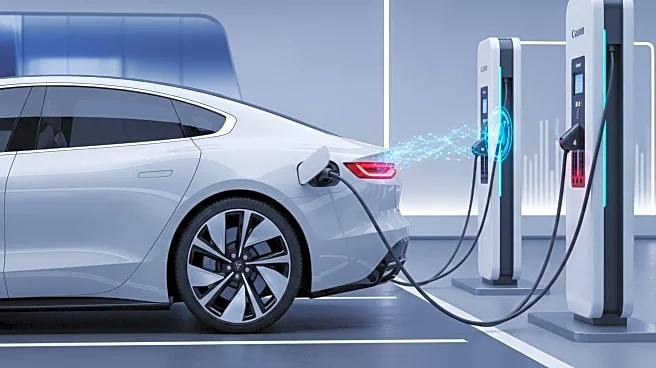What is the story about?
What's Happening?
Tesla reported a significant increase in vehicle deliveries for the third quarter, surpassing Wall Street estimates. The company delivered 497,099 vehicles, marking a 7.4% increase from the previous year. This surge was driven by U.S. electric vehicle buyers rushing to secure tax credits before their expiration at the end of September. Despite the strong third-quarter performance, concerns loom over potential declines in fourth-quarter sales due to the expiration of the $7,500 federal tax credit. Tesla's shares fell in response to these concerns, as analysts anticipate a slowdown in sales. The company faces challenges in Europe and China, with declining sales and increased competition from local brands.
Why It's Important?
Tesla's delivery surge highlights the impact of government incentives on consumer behavior and market dynamics. The expiration of tax credits poses a challenge for Tesla, potentially affecting future sales and market share. The company's ability to navigate this transition will be crucial, as it seeks to maintain momentum through new, more affordable models. Tesla's performance is closely tied to CEO Elon Musk's wealth, with recent stock price increases bolstering his position as the world's richest person. The company's strategic focus on AI-based self-driving systems and technology positioning may influence its long-term growth and competitiveness in the evolving automotive industry.
What's Next?
Tesla's upcoming quarterly results, set to be reported on October 22, will provide further insights into its performance and strategic direction. Analysts will closely monitor the company's ability to cushion the post-credit slowdown, with a focus on its push into lower-priced models. The proposed shareholder vote on a new CEO award could significantly impact Musk's stake in the company, contingent on performance and valuation targets. Tesla's efforts to expand its product lineup and adapt to changing market conditions will be key factors in its future trajectory.
Beyond the Headlines
Tesla's situation underscores the broader implications of government policy on industry dynamics and consumer behavior. The expiration of tax credits highlights the role of incentives in shaping market trends and competitive landscapes. Tesla's strategic positioning as a technology company, focusing on AI and self-driving systems, reflects broader shifts in the automotive industry towards innovation and sustainability. The company's challenges in international markets, particularly in Europe and China, illustrate the complexities of global competition and the need for adaptive strategies.















